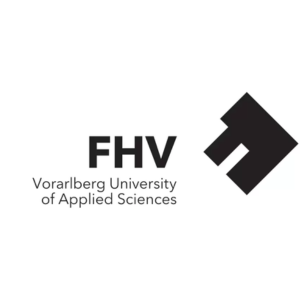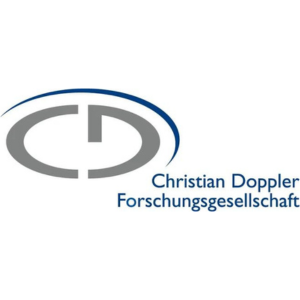ITES
Intelligent Thermal Energy Systems
Discover the future of energy management with ITES, the Intelligent Thermal Energy Systems project led by Prof. DI Dr. Markus Preißinger at Fachhochschule Vorarlberg GmbH, Forschungszentrum Energie. Our team is pushing the boundaries of digitalization and data science in the thermal energy field with the support of our industry partners: Bertsch Energy GmbH & Co KG, Gantner Instruments GmbH, Rupp AG, Weider Wärmepumpen GmbH, and innotech MSR GmbH.
What are Intelligent (Thermal) Energy Systems?
Intelligent Thermal Energy Systems refer to energy systems that employ advanced technologies and control strategies to optimize thermal energy generation, distribution, and utilization.
Thermal energy storage, smart control mechanisms, and integration capabilities with other energy networks, such as electricity and gas, characterize these systems.
Their primary objectives are to enhance energy efficiency, minimize energy waste, and reduce reliance on fossil fuels. These systems collaborate with electrical energy generation and supply networks, creating a harmonized infrastructure.
This cohesive approach is steering us toward a more sustainable and cost-effective energy system, underscoring the importance of Intelligent (Thermal) Energy Systems shaping the future of energy management.
Our Mission
At ITES, the vast amounts of operational data recorded by sensors in thermal systems have untapped potential. While this data is frequently collected, it is rarely used efficiently due to the complexity of analysis and utilization. We aim to harness this potential to create value for manufacturers and customers.
What We Do
ITES explores advanced methods for the intelligent evaluation and use of this data, such as predictive maintenance, strategic facility design, utilization of historical data, lifecycle analysis, automated expert systems, and intelligent reporting. Our team brings expertise in process engineering, thermodynamics, energy system analysis and evaluation, applied mathematics, optimization, and data science to make these data sets work for us.
Real-world Applications
In practical terms, our work has several applications. For example, in the food industry, cooling systems often operate with high redundancies to compensate for the failure of individual cooling units. By reading and intelligently evaluating all available system data, we can reliably predict when the system needs maintenance to prevent failure, thus reducing the need for redundancies and saving costs.
All data is streamed and stored at Gantner’s distributed streaming platform, GI.cloud, where project participants perform real-time data visualization, analysis, and enrichment with Python Jupyter Lab.
We apply similar principles to residential heat pumps and biomass power plants. We optimize the system based on operational and historical data for the former, taking advantage of times with lower electricity costs. For the latter, we use constant monitoring of operating states and comparison with historical data to optimize operations, resulting in higher yields of renewable electricity.
Our goal is to continue maintaining and supporting these thermal systems even after their installation, incorporate gained insights into future systems’ development, and generate value for customers and manufacturers.
From sensor to cloud connectivity
Gantner Instruments can collect data from a wide range of sensors at high speed and with the highest quality. This data is stored, visualized, and processed into knowledge in real-time. Gantner’s cutting-edge technology is widely used for testing and monitoring applications in the mobility, aerospace, construction, and renewable energy sectors.
Join us in our journey towards more efficient thermal energy systems, where every sensor, can significantly improve efficiency when used correctly, no matter how small.
Together we will shape the future of thermal energy efficiency.
DAQ Systems Overview
Ready to delve deeper? Discover how our innovative DAQ systems seamlessly capture and interpret data for smarter, more efficient operations.
GI.cloud
Curious about how we handle colossal data streams? Take a look at GI.cloud, our distributed streaming platform, perfect for real-time data visualization and analysis.
Publications
Failure detection in a water treatment system of a biomass CHP; G.Prokhorskii et al.; HEAT POWERED CYCLES CONFERENCE 2022, Bilbao, Spain (Paper)
Live Steam Prediction: Process, methods, data, and Issues; G.Prokhorskii et al.; ITES workshop 2022 (Poster)
FHV Forschende testen Energiesysteme der Zukunft (Article)
C. Baumann, G. Huber, J. Alavanja, M. Preißinger, P. Kepplinger, Experimental validation of a state-of-the-art model predictive control approach for demand side management with a hot water heat pump, Energy and Buildings 285 (2023) 112923.doi:10.1016/j.enbuild.2023.112923 (Paper)
C. Baumann and P. Kepplinger, Application of a flexibility estimation method for domestic heat pumps with reduced system information and data, Cleaner Energy Systems (2023): 100081.doi:10.1016/j.cles.2023.100081 (Paper)
C. Baumann, G. Huber, M. Preißinger, P. Kepplinger, A Cloud-Based Flexibility Estimation Method for Domestic Heat Pumps, Proceedings of the 9th Heat Powered Cycles Conference, Bilbao, Spain. (Paper)
G. Prokhorskii, C.Stegh, V. Seiler, M. Netzer and M. Preißinger, Failure detection in a water treatment system of a biomass CHP, Proceedings of the 9th Heat Powered Cycles Conference, Bilbao, Spain.
P. Wohlgenannt, G. Huber, k. Rheinberger, M. Preißinger, P. Kepplinger, Modelling of a Food Processing Plant for Industrial Demand Side Management, Proceedings of the 9th Heat Powered Cycles Conference, Bilbao, Spain. (Paper)


